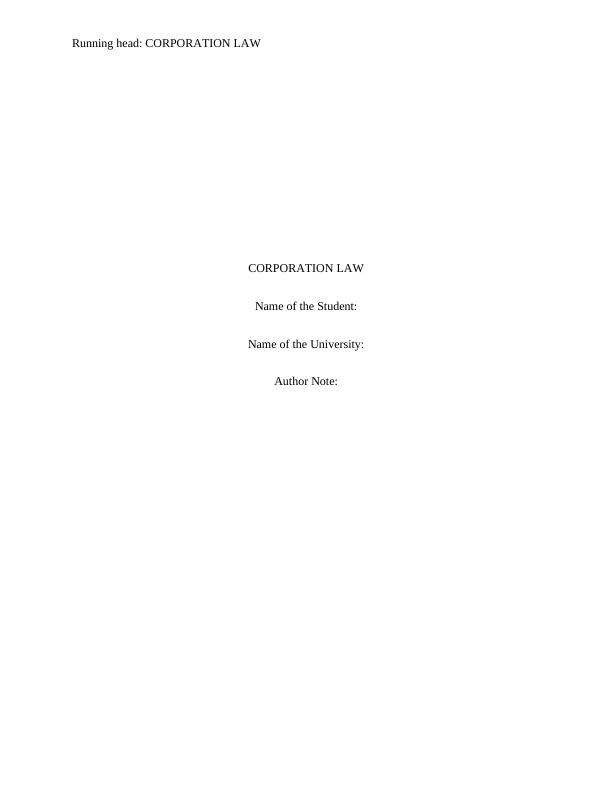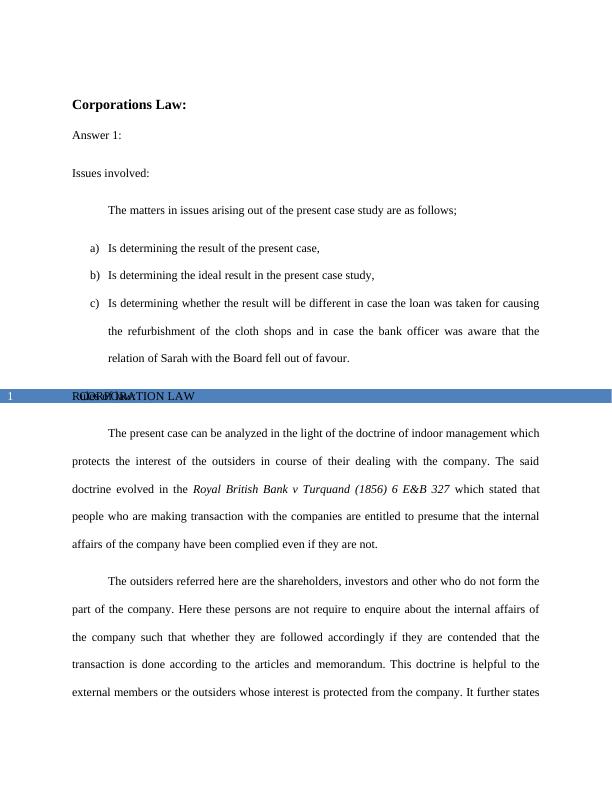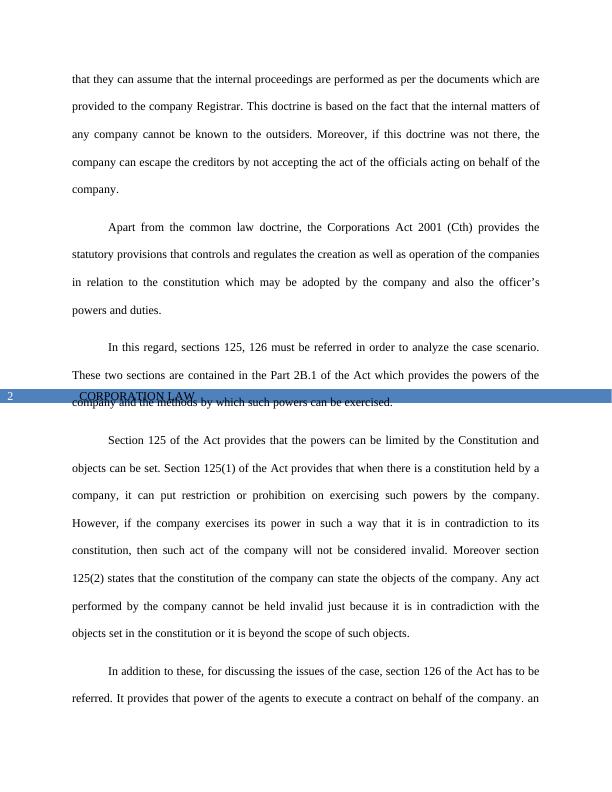Corporation Law: Analysis of Case Scenarios
The assignment requires students to solve two case problems in Corporations Law by citing relevant legal rules and cases and applying them to the facts of the case.
10 Pages2367 Words347 Views
Added on 2022-11-14
About This Document
This document provides an analysis of two case scenarios related to Corporation Law. The first scenario deals with the doctrine of indoor management and the second scenario deals with the duty of care and diligence of directors and officers of a company.
Corporation Law: Analysis of Case Scenarios
The assignment requires students to solve two case problems in Corporations Law by citing relevant legal rules and cases and applying them to the facts of the case.
Added on 2022-11-14
ShareRelated Documents
End of preview
Want to access all the pages? Upload your documents or become a member.
Corporation Law: Case Study Analysis
|8
|1350
|457
Case Study Assignment 2022
|9
|749
|11
Case Study Issues 2022
|6
|1128
|12
The Business Law Assignment (DOC)
|8
|1723
|58
Corporations Law
|4
|726
|348
Business and Corporate Law: Contract Law and Corporations Act 2001
|12
|571
|395



